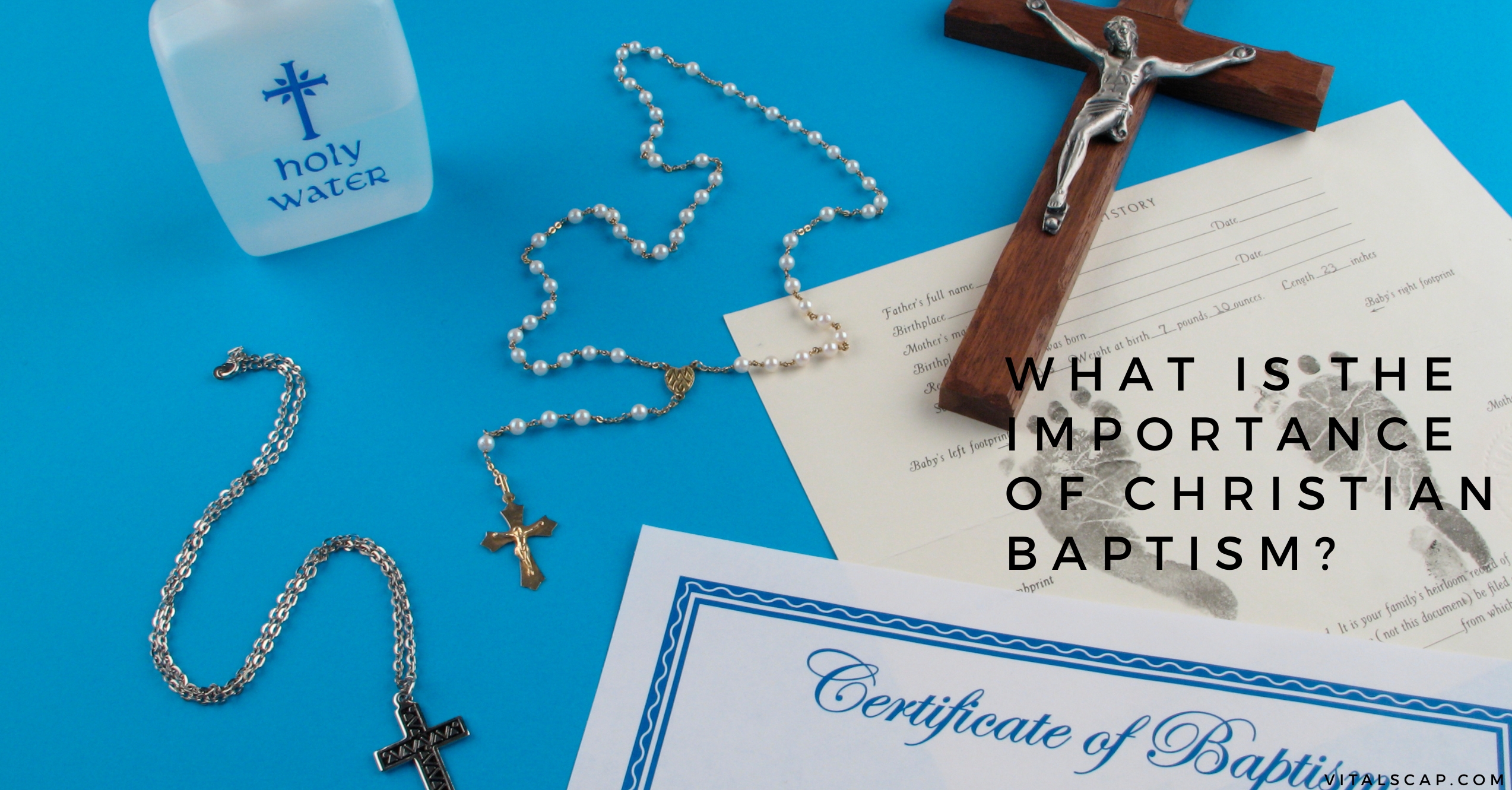Water cascades over countless heads every Sunday across America. Yet many believers still wonder about the profound meaning of baptism and why this ancient religious ritual remains Christianity’s most powerful symbol. Understanding baptism definition goes far beyond getting wet-it represents the cornerstone of Christian faith practice.
Dr. Wayne Grudem, professor of theology at Phoenix Seminary, explains: “Baptism is not merely a human ritual but a divine ordinance that connects us to Christ’s death and resurrection in the most tangible way possible.”
What Is Baptism? The Foundation Every Christian Must Understand

Baptism stands as Christianity’s most recognizable initiation rite, marking the beginning of a believer’s public journey with Jesus Christ. This Christian sacrament involves water baptism administered by church leaders as both symbolic washing and spiritual cleansing.
The baptism definition comes from the Greek word “baptizo,” meaning to immerse, dip, or submerge completely. What does the word baptism mean in its original context? Ancient Greeks used this term for dyeing cloth-fabric completely saturated with color, permanently changed. Similarly, Christian baptism represents complete transformation through faith.
Biblical baptism appears throughout the New Testament, beginning with John the Baptist’s ministry. Jesus Christ himself submitted to baptism, establishing this religious tradition for all believers. The Great Commission in Matthew 28:19 commands disciples to baptize new converts “in the name of the Father, Son, and Holy Spirit.”
The Bible’s Answer: Understanding Scripture’s
Scripture provides unmistakable clarity about baptism meaning in Bible passages. Acts 2:38 records Peter’s instruction: “Repent and be baptized every one of you in the name of Jesus Christ for the forgiveness of your sins.” This verse establishes the direct connection between repentance, baptism, and spiritual cleansing.
Romans 6:3-4 reveals baptism’s deeper symbolism: “Do you not know that all of us who have been baptized into Christ Jesus were baptized into his death? We were buried therefore with him by baptism into death, in order that, just as Christ was raised from the dead by the glory of the Father, we too might walk in the newness of life.”
Dr. John MacArthur, pastor and theologian, states: “Baptism is the believer’s public declaration of faith in Christ, symbolizing the death of the old self and resurrection to new life in Him.”
Types of baptism in the Bible include John’s baptism (repentance), Christian baptism (faith declaration), and Spirit baptism (divine empowerment). Each serves distinct purposes in God’s redemptive plan.
More Post: What Is the Meaning of Three Crosses? Complete Symbolism Guide 2025
What Does Baptism Mean?
Baptism’s meaning and purpose encompasses multiple layers of religious symbolism. This Christian sacrament represents three fundamental spiritual realities that transform believers’ lives permanently.
First, baptism symbolizes death to sin and resurrection to righteousness. When believers descend into baptismal waters, they identify with Christ’s burial. Rising from water represents resurrection power working in their lives. This symbolic washing demonstrates internal transformation through divine grace.
Religious tradition recognizes baptism as spiritual cleansing from sin’s guilt and shame. Biblical baptism doesn’t cause salvation but publicly declares what God has already accomplished through faith. The baptism ceremony serves as visible testimony of invisible spiritual reality.
| Baptism Symbolism | Biblical Reference | Spiritual Meaning |
| Death to Sin | Romans 6:6 | Old nature crucified |
| Burial with Christ | Romans 6:4 | Past life buried |
| Resurrection Life | Romans 6:4 | New creation reality |
| Spiritual Cleansing | Acts 22:16 | Sin’s guilt washed away |
What Is the Importance of Christian Baptism?

Christian baptism carries supreme importance because Jesus Christ directly commanded this practice. Understanding the 5 importance of baptism helps believers grasp why this religious ritual remains non-negotiable for authentic discipleship.
Biblical baptism demonstrates obedience to Christ’s explicit instruction. Matthew 28:19 records Jesus’ final earthly command: “Go therefore and make disciples of all nations, baptizing them in the name of the Father and of the Son and of the Holy Spirit.” Refusing baptism means disobeying Christ’s direct order.
Dr. R.C. Sproul emphasized: “Baptism is not optional for Christians-it’s a command of Christ that every believer must follow as an act of obedience and public testimony.”
Key importance points
- Obedience to Christ’s command
- Public faith declaration
- Church membership initiation
- Spiritual cleansing symbolism
- Holy Spirit empowerment
What Is the Purpose of Baptism? Understanding God’s Design
Baptism’s meaning and purpose extends beyond personal spiritual experience to encompass community integration and public testimony. This Christian sacrament serves God’s specific design for church growth and believer development.
Primary baptism purposes include public faith profession, obedience demonstration, and church fellowship initiation. When believers undergo water baptism, they join centuries of Christian tradition connecting them to global Christianity. This initiation rite marks transition from spiritual infancy to active discipleship.
Biblical evidence shows baptism following genuine conversion. Acts 8:36-37 records the Ethiopian eunuch’s immediate baptism after faith declaration. Acts 16:33 describes the Philippian jailer’s household baptism following salvation experience. These examples establish baptism as post-conversion religious practice.
10 importance of baptism according to Scripture
- Christ’s direct command obedience
- Public faith declaration
- Church membership beginning
- Sin guilt symbolic removal
- New life celebration
- Community witness opportunity
- Discipleship journey launch
- Holy Spirit empowerment
- Biblical example following
- Future testimony foundation
3 Reasons Why Baptism Is Important for Every Believer
Modern Christianity recognizes 3 reasons why baptism is important that transcend denominational differences and cultural boundaries. These fundamental purposes make baptism essential for authentic Christian living.
Reason One
Obedience to Christ stands as baptism’s primary importance. Jesus Christ commanded baptism in the Great Commission, making this religious ritual non-negotiable for true disciples. Disobedience to baptism represents disobedience to Christ himself.
Reason Two
Public testimony allows believers to declare faith publicly. Baptism ceremonies provide powerful witness opportunities before family, friends, and church communities. This public declaration strengthens personal faith while encouraging other believers.
Reason Three
Spiritual growth foundation establishes discipleship beginning. Baptism marks transition from spiritual infancy to active church participation. Baptized believers typically demonstrate stronger commitment to Christian service and biblical study.
| Baptism Importance | Biblical Basis | Practical Result |
| Christ’s Command | Matthew 28:19 | Obedient discipleship |
| Public Testimony | Acts 8:36-38 | Community witness |
| Growth Foundation | Romans 6:1-4 | Spiritual maturity |
More Post: What Is the Medical Meaning for DTF? Complete Guide to Medical DTF Terminology
How Baptism Relates to Jesus
Jesus Christ’s baptism by John the Baptist in the Jordan River establishes the perfect example for Christian baptism. Matthew 3:13-17 records this pivotal moment when heaven opened and the Father declared divine approval.
Christ’s baptism wasn’t for sin cleansing since he remained sinless. Instead, Jesus demonstrated righteousness, fulfillment and identification with human repentance. His baptism marked public ministry beginning and Trinity revelation.
Jesus’ baptism significance:
- Righteousness fulfillment demonstration
- Public ministry inauguration
- Trinity revelation moment
- Christian baptism example
- Divine approval declaration
Following Christ’s example means believers undergo baptism as obedience act rather than salvation requirement. Jesus established baptism as discipleship marker for all future believers.
Biblical Methods Explained
Biblical baptism methods have sparked denominational debates for centuries. Understanding how baptism should be performed according to Scripture helps believers make informed decisions about this sacred practice.
Archaeological evidence and biblical language strongly support full immersion as the original baptism method. The Greek word “baptizo” consistently means complete submersion rather than sprinkling or pouring. Early church historical records confirm immersion as standard practice.
4 types of baptism methods practiced today:
- Full immersion (complete submersion)
- Pouring (water poured over head)
- Sprinkling (light water application)
- Affusion (water flowing over body)
Dr. Wayne Grudem notes: “The New Testament Greek word ‘baptizo’ and the symbolism of Romans 6:1-4 both point strongly toward immersion as the original and most appropriate method.”
Trinitarian formula remains essential regardless of the method chosen. Matthew 28:19 requires baptism “in the name of the Father, Son, and Holy Spirit.”
How Does Baptism Differ Among Christian Denominations? Unity in Diversity
Christian denominations practice baptism differently while maintaining core biblical principles. Understanding denominational differences helps believers navigate various church traditions with wisdom and respect.
Catholic Church practices infant baptism as sacramental grace conferring. Catholic theology teaches baptism removes original sin and initiates church membership. Confirmation later completes baptismal commitment.
Protestant denominations vary significantly. Baptist churches require a believer’s baptism by full immersion after personal faith declaration. Presbyterian and Methodist churches practice infant baptism while also accepting adult baptism.
Eastern Orthodox traditions immerse infants three times, representing Trinity. Pentecostal churches emphasize Spirit baptism alongside water baptism.
| Denomination | Baptism Age | Method | Theological View |
| Catholic | Infant | Pouring | Sacramental grace |
| Baptist | Believer | Immersion | Public profession |
| Presbyterian | Infant/Adult | Sprinkling | Covenant sign |
| Methodist | Infant/Adult | Various | Grace means |
| Pentecostal | Believer | Immersion | Spirit empowerment |
The Sacrament of Baptism in the Catholic Church
Catholic baptism represents one of seven sacraments essential for salvation according to Catholic teaching. Catholic Church practices infant baptism as standard procedure, believing sacramental grace removes original sin.
Catholic baptismal theology emphasizes sacramental efficacy-grace flows through proper sacramental administration regardless of recipient’s faith. Infant baptism initiates children into church membership before personal faith development.
Catholic baptism requirements:
- Proper form (Trinitarian formula)
- Proper matter (water)
- Proper intention (church’s intent)
- Proper minister (priest/deacon)
Catholic parents commit to raising children in the Catholic faith during baptismal ceremony. Godparents promise spiritual guidance throughout a child’s development.
Examining Scripture Carefully
Infant baptism remains highly debated among Christian scholars and denominations. Biblical evidence requires careful examination to determine scriptural accuracy regarding infant baptism practices.
Supporters cite household baptisms in Acts (Cornelius, Lydia, Philippian jailer) as potential infant inclusion. Covenant theology connects baptism to Old Testament circumcision as covenant sign for children.
Critics argue New Testament baptism consistently follows personal faith confession. Acts 8:37 states: “If you believe with all your heart, you may [be baptized].” Personal faith appears prerequisite for biblical baptism.
Biblical baptism examples:
- Jesus (adult)
- Ethiopian eunuch (adult believer)
- Saul/Paul (adult convert)
- Cornelius household (believers)
- Lydia (adult believer)
Age of accountability suggests children need personal faith before meaningful baptism.
Why Is It Important for Christians to Be Baptized?
Christian baptism’s importance extends beyond religious obligation to encompass personal transformation and spiritual growth. Baptized believers typically demonstrate stronger faith commitment and church involvement.
Psychological studies reveal public religious commitments strengthen personal conviction. Baptism ceremonies create memorable experiences that reinforce faith decisions during difficult seasons.
Baptism provides a clear conversion marker helping believers remember salvation experiences. Satan’s accusations lose power when believers recall public faith declaration through baptism.
Personal benefits include:
- Guilt removal through symbolic cleansing
- Community connection via church membership
- Spiritual confidence from obedience
- Growth motivation through public commitment
- Identity clarification as Christ follower
Regular baptism reflection strengthens Christian identity and renews commitment to biblical living.
Truth vs. Fiction

Common baptism misconceptions confuse believers and distort biblical teaching. Addressing these errors helps Christians understand baptism’s true meaning and proper practice.
Misconception One: Baptism saves souls. Biblical truth teaches salvation by grace through faith (Ephesians 2:8-9). Baptism follows salvation as an obedience act, not salvation.
Misconception Two: Any water suffices. Proper baptism requires church authority and trinitarian formula. Swimming pool baptisms without pastoral oversight lack biblical legitimacy.
Misconception Three: Once baptized, always protected. Baptism doesn’t guarantee eternal security. Ongoing faith and obedience remain essential for authentic Christianity.
Truth foundation:
- Salvation precedes baptism
- Church authority matters
- Continued faithfulness required
- Personal faith essential
More Post: What is the Opposite Meaning of Still? Complete Guide 2025 to Multiple Antonyms
Biblical Perspective
Multiple baptisms raise legitimate questions about proper biblical practice. Scripture suggests one baptism sufficient when properly administered after genuine conversion.
Ephesians 4:5 declares “one baptism” alongside “one Lord, one faith.” This passage indicates single baptism adequacy for lifetime.
Valid rebaptism reasons might include:
- Infant baptism followed by adult conversion
- Baptism before genuine salvation
- Denominational requirements
- Personal spiritual renewal desire
Most evangelical scholars accept rebaptism when original baptism lacked personal faith or proper understanding.
Frequently Asked Questions
What is the true meaning of baptism?
Baptism symbolizes spiritual death and resurrection, representing the believer’s union with Christ through faith declaration and obedience.
What does Jesus say about baptism?
Jesus commands baptism in Matthew 28:19, modeling it himself and making it essential for Christian discipleship.
What are the main purposes of baptism?
Baptism serves three purposes: public faith declaration, obedience to Christ’s command, and initiation into church community.
Why do I need to be baptized?
Christians need baptism to obey Jesus’ command, publicly declare faith, and follow Christ’s example of righteousness.
Conclusion
Baptism’s meaning transcends mere ritual-it’s your public declaration of faith transformation. This ancient practice connects you to Christ’s death and resurrection while launching your discipleship journey.
Whether you’re considering baptism or deepening understanding, remember that this sacred act represents Christianity’s most powerful symbol of new life in Christ. Take the next step and discuss baptism with your local pastor today.
More Post:

Passionate about innovation and growth. Dedicated to managing, optimizing, and creating seamless experiences while supporting diverse content and users with professionalism and clarity every day.








